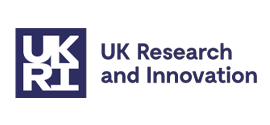
More than 200 parents and teachers in Yirgalem and Aleta-Wondo, towns in the recently constituted Sidama National Regional State in southern Ethiopia, participated in a two-day training programme on domestic violence prevention as part of a larger campaign for inclusive educational curricula and society. The programme, held from May 15–16 and conducted in four sessions, was organised by the indigenous Inclusive Humanitarian Organization (IHO), a partner of the Institute of Domestic Violence, Religion & Migration (IDVRM).
The training employed the film Tidar (‘Marriage’), an open access research-based docudrama produced by Project dldl/ድልድል with funding from UK Research and Innovation (UKRI) to address domestic violence and harmful social behaviours in Ethiopia’s faith communities. Project dldl/ድልድል, a project run at SOAS University of London until May 2025, evolved into the currently independent Institute of Domestic Violence, Religion and Migration (IDVRM), which continues the original mission to promote culturally resonant and faith-informed responses to domestic violence internationally.
As part of the programme, participants watched the 40-minute Tidar film and then engaged in group discussions and provided feedback to inform future film productions. According to the facilitators’ report produced by IHO, the video generated strong reactions: female participants expressed encouragement and empowerment from the character who took protective steps against her abusive husband, while several men in the audience admitted feeling embarrassed and were reflective about harmful behaviours they recognised in themselves.
Despite challenges, such as electricity outages and inadequate projection equipment, the facilitators noted the film’s positive impact in shifting attitudes. They recommended translating Tidar into local southern languages, including Sidama, Wolaytta and Silte, to reach wider audiences in culturally sensitive ways. They also stressed the need for dedicated independent project support to expand screenings, emphasising that “behavioural change does not come overnight and requires continuous lessons and discussion.”
After the screening, IHO reaffirmed its commitment to strengthening community dialogue and educational tools using such short documentaries as part of its broader awareness campaign to achieve inclusive education for society.
Tidar is one of the major outputs of Project dldl/ድልድል, an open-access multilingual docudrama co-produced in Ethiopia and the UK by an all-Ethiopian crew. The film was directed by Yidnekachew Shumete Desalegn and produced by Max Conil and Hermon Hailay, under the executive directorship of Dr Romina Istratii, who wrote the script based on her long-term anthropological research in Ethiopia.
This short documentary has been screened in other parts of Ethiopia, continues to inspire many women and men to fight against domestic violence, and this was the third time that IHO screened it to the communities it works with.
The International Humanitarian Organization (IHO) is an Ethiopian indigenous organisation that supports people with disabilities and other vulnerable groups. It integrated the film into its community engagement activities after hearing about it through the Protection from Sexual Exploitation and Abuse (PSEA) Network in Ethiopia, which circulated it among members as an educational resource on behalf of Project dldl/ድልድል.

Pictures were taken with the consent of the participants by a schoolteacher at Yirgalem Adarash Meeting Hall during a training session on inclusive pedagogy. The image was provided to IDVRM for exclusive use. Please do not reproduce. Copyright: IHO.
